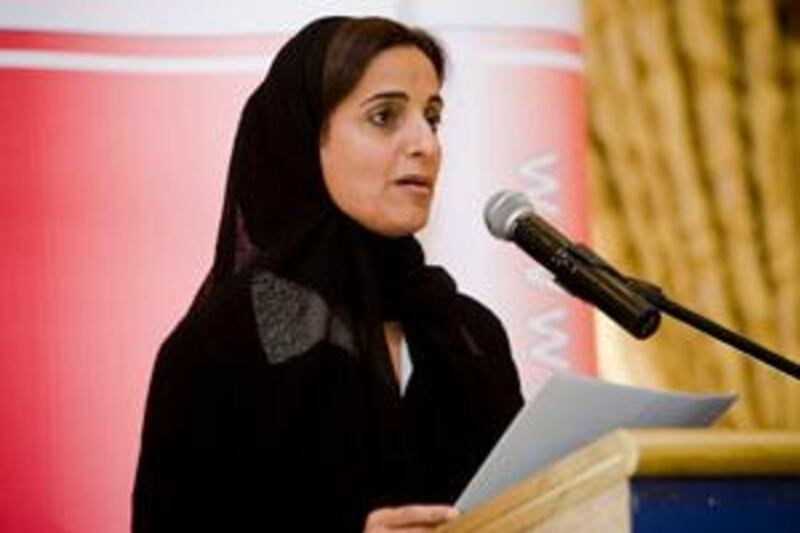DUBAI // In the 26 years since Sheikha Lubna Al Qassimi took her first job, the role of women in the Emirates has changed almost beyond recognition. In 1983, she became the first female engineer in the country when she started working with computers. Now Minister for Foreign Trade and the nation's first woman minister, Sheikha Lubna is proud of how the role of women has developed.
Speaking ahead of International Women's Day yesterday, Sheikha Lubna said: "Sometimes I envy - in a positive way - the young women of today. They have their way paved for them but that's because of women like myself. "The community now thinks it's the norm. It's a natural progression in society though, not something that happened overnight. "There are very few barriers in front of women here. They are respected. The challenges occur only in women's own minds, such as the problems of balancing a career and family," she said.
"Men are more willing to support their wives, daughters and so on but the main thing has been the leadership of the Government." Her childhood experiences of growing up in the Emirates, as well as family influences, played a major part in her life, she said, as well as in her role as jury president and Asia judge of the Cartier Women's Initiative Awards. She said her teachers had been a great influence but the confidence came from her parents. "My late father was very supportive of us girls and we were treated equally. I always believe that if there's direct support from the father, girls grow much better from a young age."
Going to a segregated school, she was surrounded by keen students. But in the subjects she loved - science and maths - she always ranked first or second. "When I got bored, I solved differential equations." The Cartier awards - now in their third year - were "about being an example and being a role model, being active". It was part of the social responsibility of being a responsible citizen, she said.
Part of this feeling comes from her having been, in effect, a pioneer finding her way without the benefit of the experience of others. "It was a brand new field and you didn't know if you were walking the right path. After that, I always felt responsible for young workers." She added: "Any initiative that pushes women for a higher level of achievement is worthwhile. It's not about just receiving financial support but it's about boosting the confidence of these women."
The awards aim to identify and support businesses owned by women around the globe through funding and coaching. The winners - one from each continent - receive prizes including coaching support and US$20,000 (Dh73,460) cash. Last year there were 400 entries altogether and this year there has been great interest from both the region and the Emirates. "There are so many talented young people here and I want to see more people from the Middle East becoming involved," said Sheikha Lubna. "I'm so pleased that this year there are so many more UAE entries."
Much of the change for women, she said, stemmed from increased access to education and the encouragement of national leaders. "It's about trying to push things. It's not about pushing women's rights here because they already have them. The Government gave everything and it was left up to the women to decide what they wanted to do. "Sheikh Zayed always said that education for women is a must. They don't have to work but education has always been a necessity, a passport to strength, power and freedom."
Last year's Asia finalists' projects included a food manufacturing start-up that promotes healthy Filipino foods and to accountancy services for start-up companies. mswan@thenational.ae






